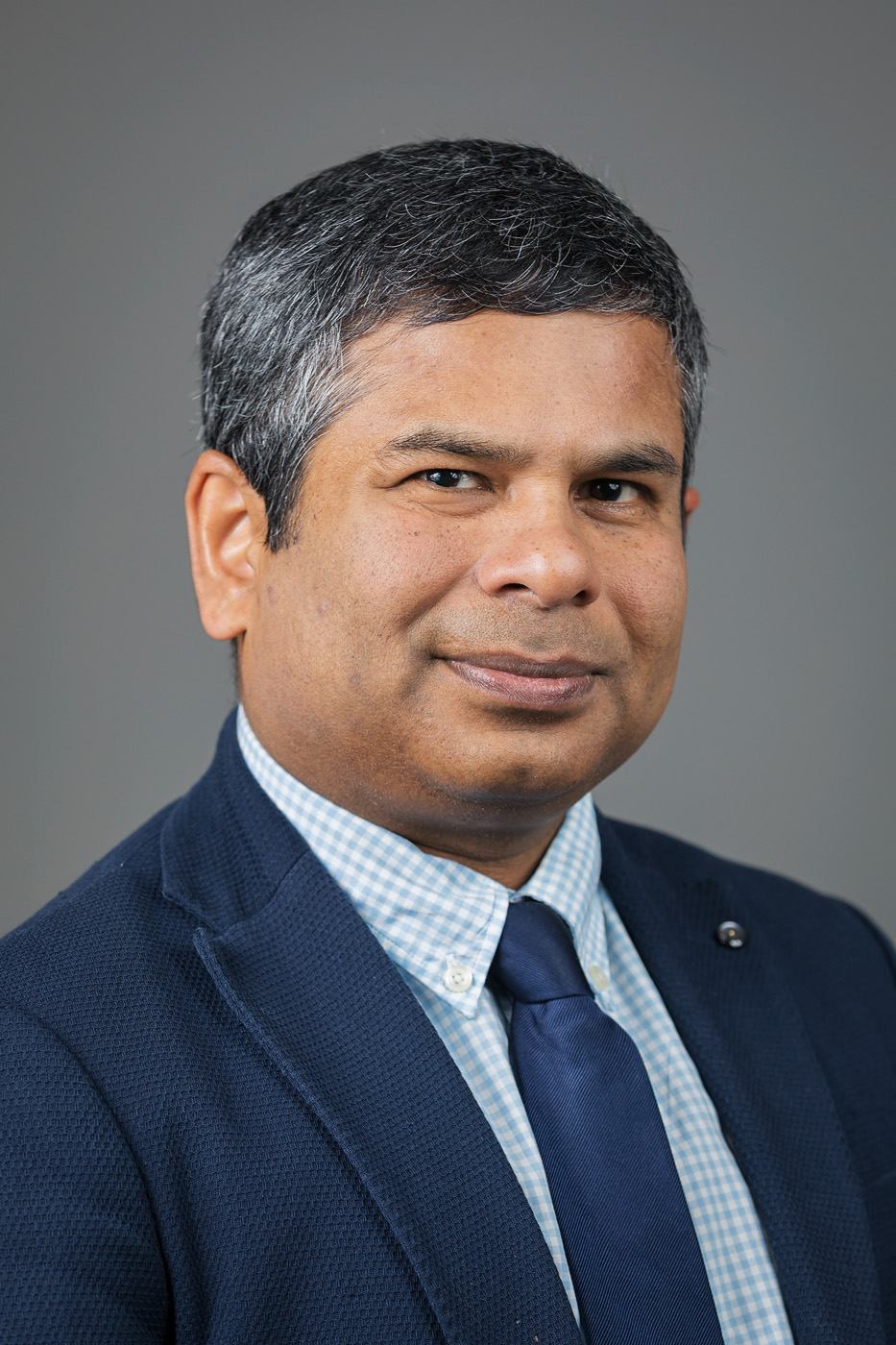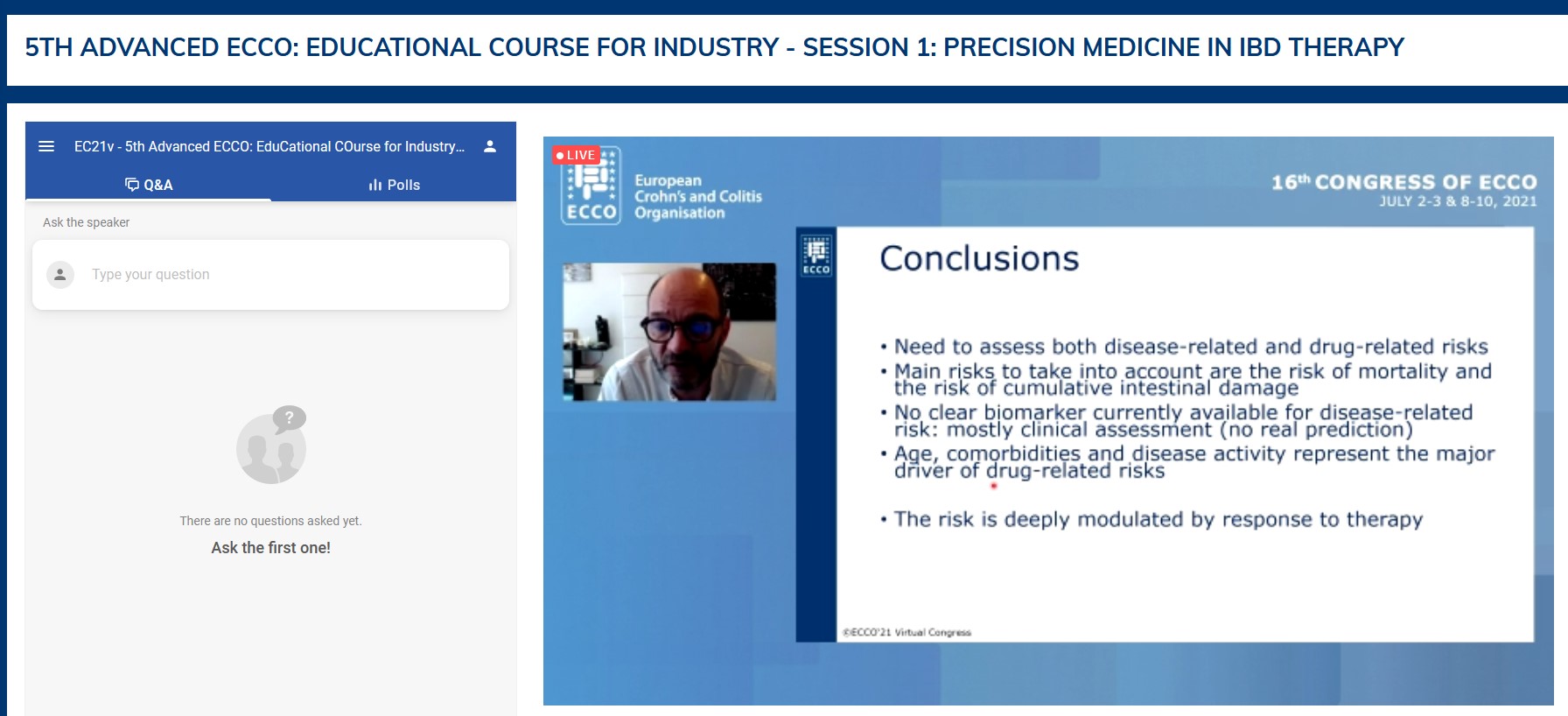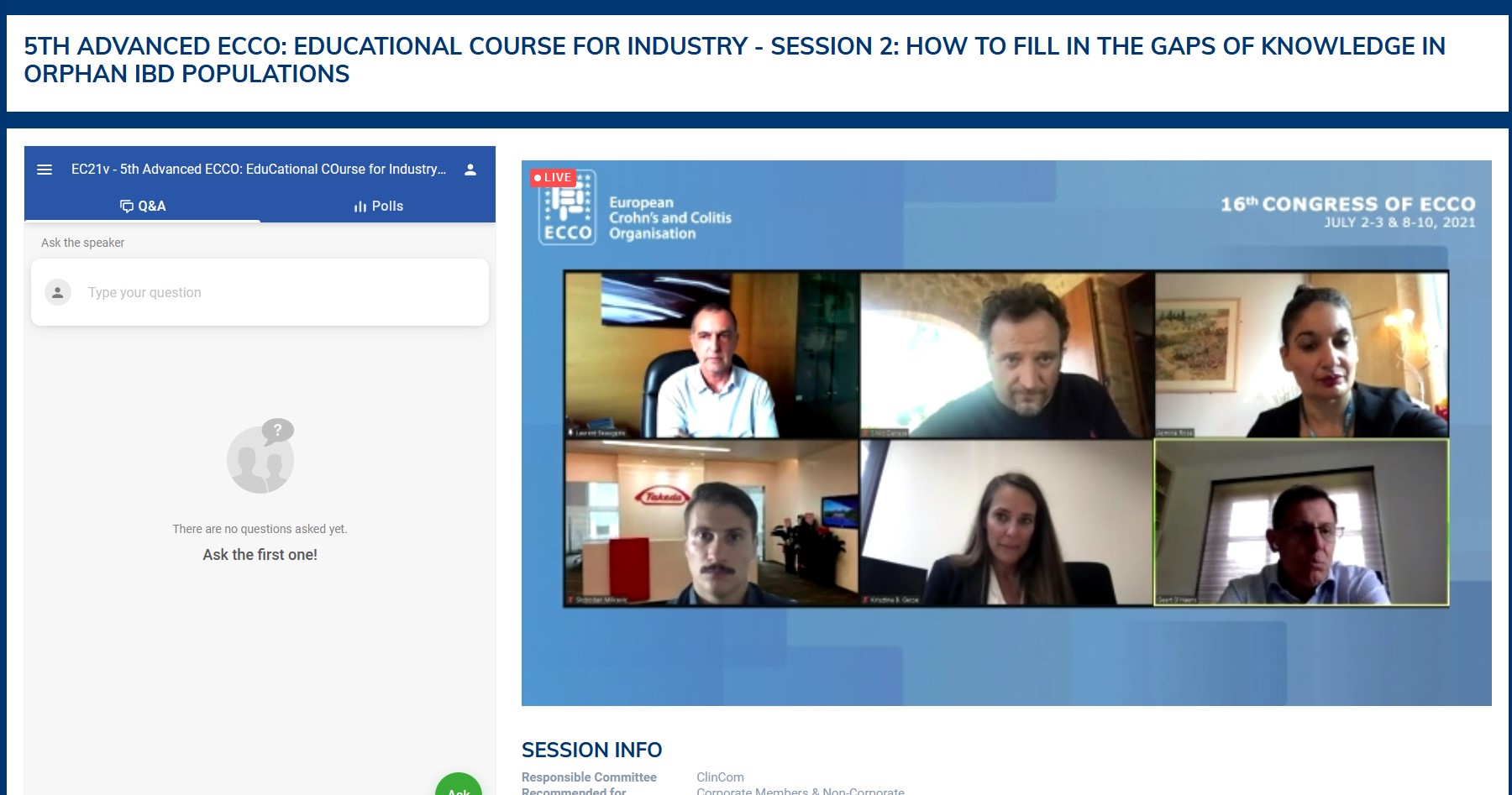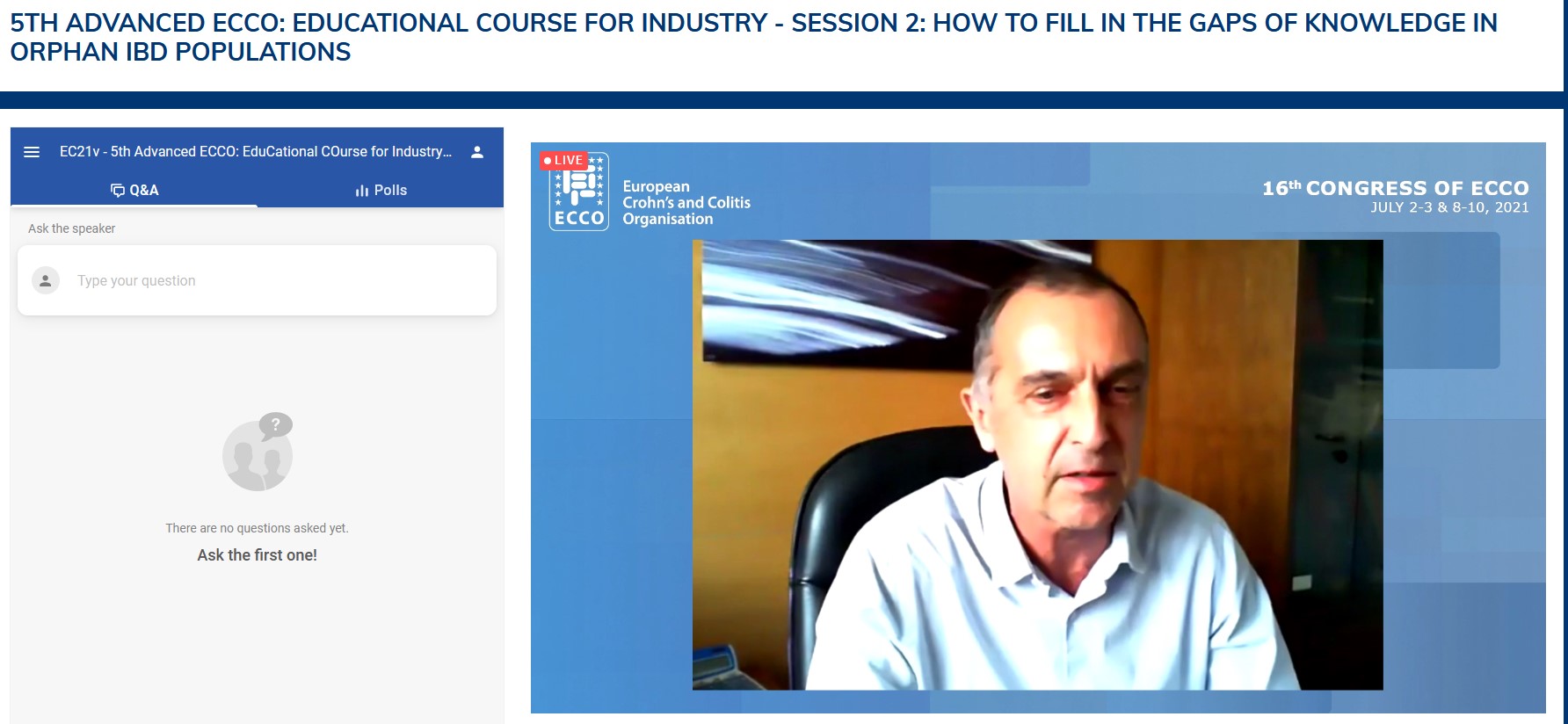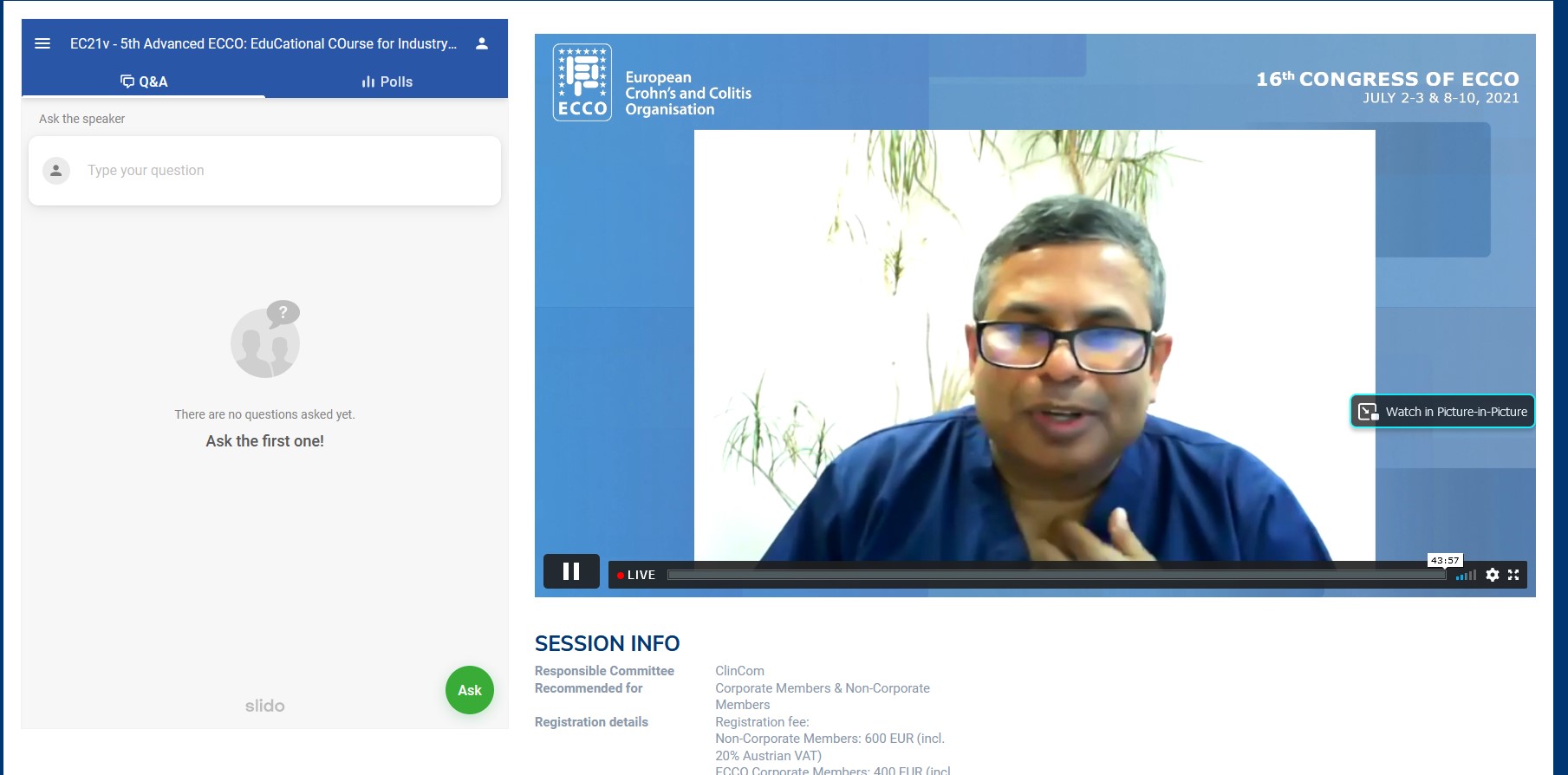Report on the 5th Advanced ECCO: EduCational COurse for Industry
Shaji Sebastian, ClinCom Member
|
|
The 5th Advanced ECCO: EduCational COurse for Industry, organised by the Clinical Research Committee of ECCO (ClinCom), was one of the highlights of the educational programme during the ECCO’21 Congress and was held virtually, with live presentations and discussions. The course was aimed at our industry partners and had the broad goal of discussing the areas of IBD research of key importance in the immediate future.
Following an introduction from the ECCO President, the first session focussed on the buzzwords in IBD care in 2021 – Precision Medicine. Séverine Vermeire spoke about the therapeutic ceiling with currently available therapies, introduced the limited tools at our disposal to precisely determine the right initial therapy for the right patient and provided a glimpse into multi-omic platforms and use of artificial intelligence, which may guide future precision therapies. Edouard Louis then expanded on the current challenges in accurately risk-stratifying patients and the lack of a biomarker to stratify disease risk. The concept of separating disease-related risk and risks related to therapies was also explored. In the following talk, Gerhard Rogler said that current tools for precision monitoring are far from perfect but stressed the value of developing precision strategies in monitoring as monitoring will allow better disease control and better quality of life. The promise of ultrasound for non-invasive monitoring was highlighted as one of the precision tools that may arrive in IBD clinics in the very near future. The lively discussion following these talks featured contributions from an industry expert (K.T. Park) and ended with calls to the industry to work with academia and professional societies in order to deliver precision medicine and thereby raise the efficacy ceiling in IBD therapeutics.
The second session focussed on the “orphan”/“orphaned” fields in IBD which challenge clinicians on the front line. The session started with a great overview by Geert D'Haens on what we have learned from clinical trials over the last 30 years. He stressed the excellent contribution made by early intervention and treat-to-target trials and proposed that strategy trials and head-to-head trials are urgently needed in the immediate future to improve remission rates, which are stuck at around 40%. Krisztina Gecse introduced the concept of orphan fields in IBD, such as metastatic Crohn’s Disease, and also spoke about some of the orphaned fields that need further focussed trials. She emphasised the need for a close working relationship between regulatory bodies, pharma and professional societies such as ECCO. Silvio Danese then provided some practical advice on filling the gaps and in particular discussed the challenges faced when conducting studies to provide solutions for difficult-to-treat patient populations, including orphan fields. The subsequent panel discussion, led by Laurent Beaugerie, featured some interesting comments on the end points used in studies from a clinician’s perspective, and Azmina Rose, the patient representative from UK, made the important point that the goals of the patient may not always align with those of the clinician. Slobodan Milicevic from our industry partners outlined some of the complexities, including the ethical aspects of including a placebo group when conducting studies in orphan populations. The panel concluded that focussed collaborative working is the only way to make progress in the orphan fields.
Overall, the 5th Advanced ECCO: EduCational COurse for Industry dived deep into challenging aspects of IBD care where much more work is needed. It was a fruitful reminder for all partners as to where some of our focus needs to be going forward. The meeting was attended by 21 participants.
Browse through the gallery:
Pictures are subject to copyright © ECCO
